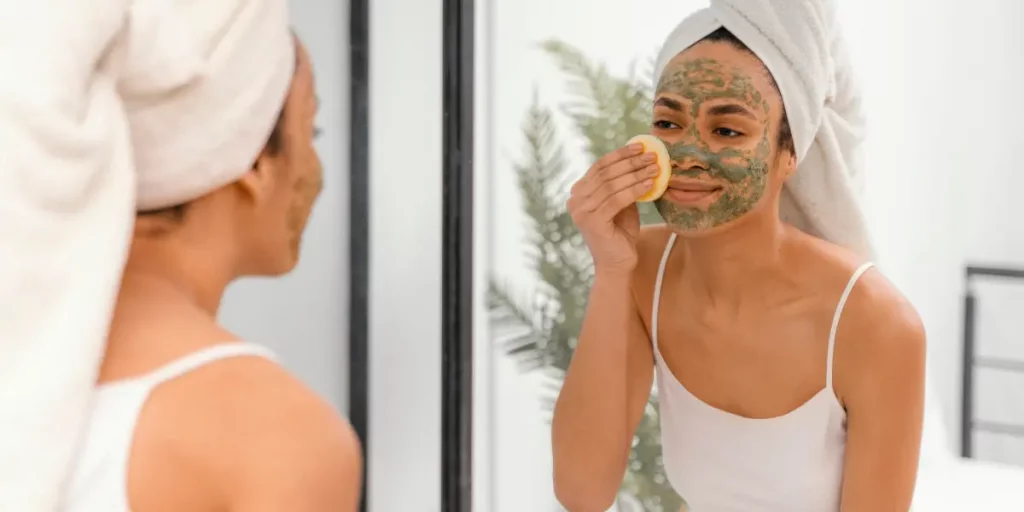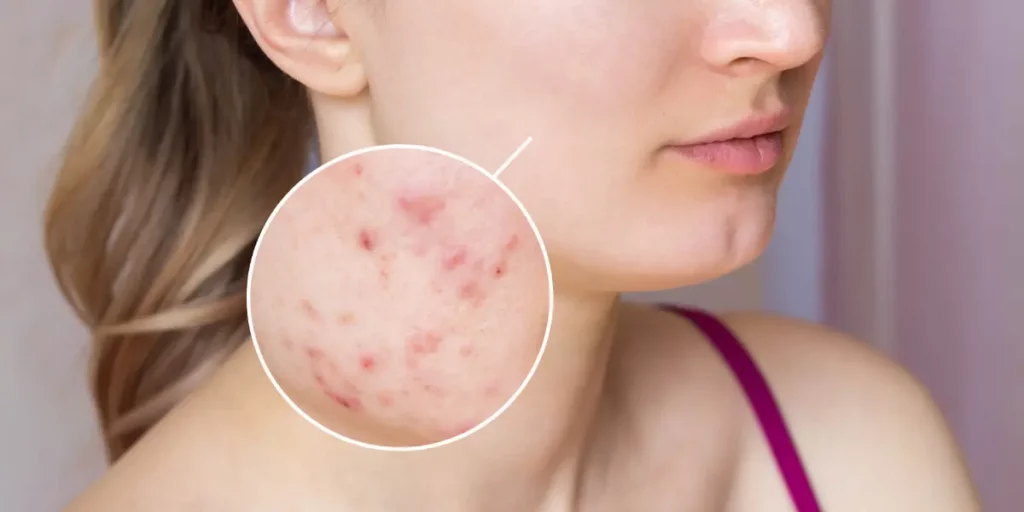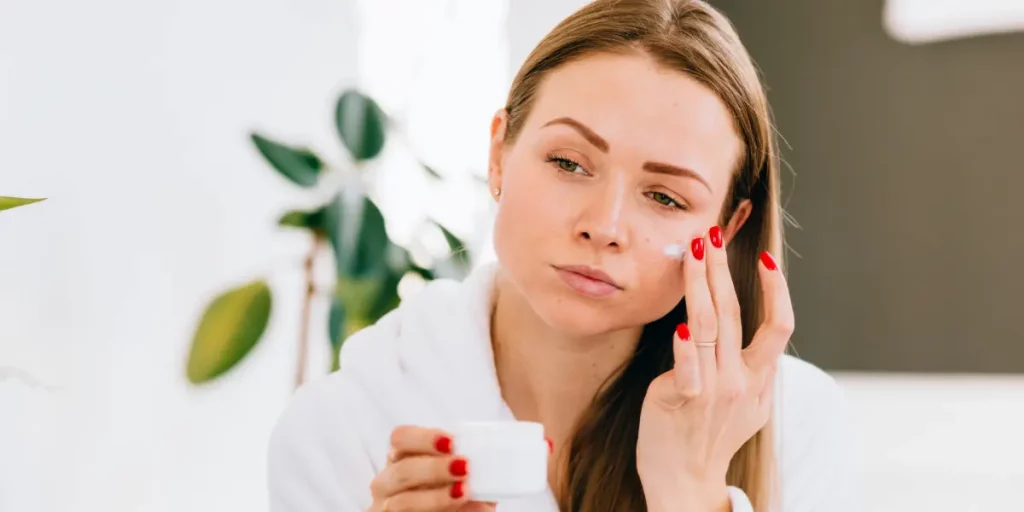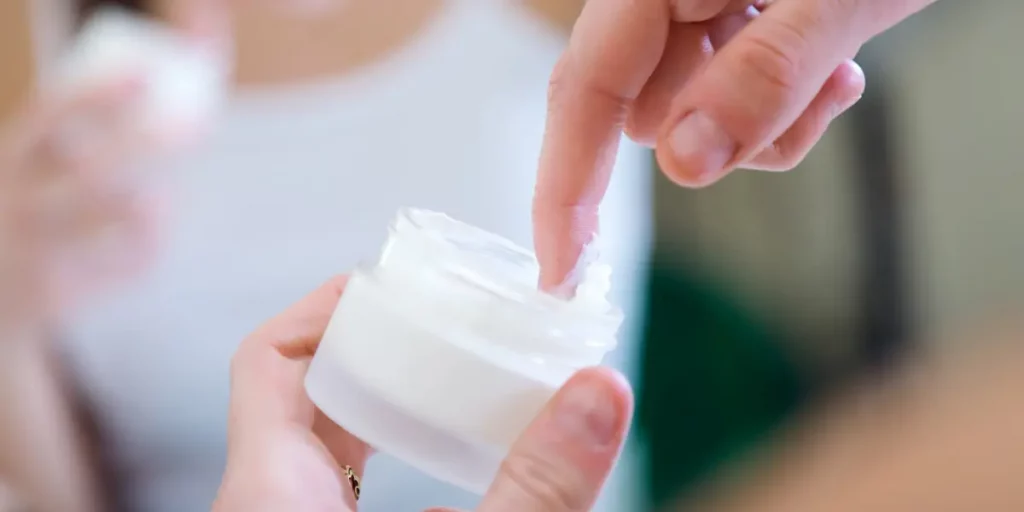Published on January 29th, 2024
Last updated on January 29th, 2024
Navigating Acne-Prone Skin

Navigating the intricacies of problematic derma is a journey. That millions embark on daily, seeking the delicate balance between self-care and frustration. Acne, a common skin condition, can affect individuals of all ages. It impacts the physical complexion and the emotional well-being. It is of those who grapple with its persistent presence. This article is a compass on how to get rid of acne quick. It offers insights, tips, and a sense of empowerment to face this challenge head-on. Acne is more than a cosmetic concern. It is a multifaceted issue with roots in genetics, lifestyle factors, and skincare habits. The emotional toll of acne is undeniable. Beyond the visible blemishes, individuals often grapple with self-esteem challenges. It impacts their social interactions and overall confidence. This guide provides practical advice on skincare routine for acne-prone skin. It is a supportive voice to remind those facing acne-prone skin that they are not alone.
Cleansing for Acne-Prone Skin
It is crucial in any skincare routine, especially for acne-prone skin. An effective cleansing routine can help manage excess oil. Also, it removes impurities and creates a foundation for other acne-fighting treatments. However, it’s essential to approach cleansing with care. It helps to avoid exacerbating acne or causing irritation. Here are some tips for a skincare routine for acne-prone skin:
- Use Lukewarm Water: Wash your face with lukewarm water instead of hot water. Hot water can dry and irritate the skin. Lukewarm water helps maintain a healthy balance.
- Cleanse Twice a Day: Cleanse your face twice daily, in the morning and evening. It helps remove oil, sweat, and environmental impurities. Avoid over-cleansing, which can strip the skin and disrupt its natural barrier.
- Gently Pat Dry: Dry your face with a clean, soft towel after cleansing. Avoid rubbing the skin vigorously. It can irritate acne-prone skin and potentially worsen breakouts.
- Avoid Scrubs and Rough Cloths: Steer clear of abrasive scrubs and harsh cleansing tools. They can aggravate acne and cause microtears in the skin. Instead, use your fingertips or a soft washcloth for gentle cleansing.
- Remove Makeup Before Cleansing: If you wear makeup, use a remover or gentle micellar water before cleansing to remove all makeup. Leaving makeup on overnight can contribute to clogged pores.
Remember that it is necessary to adapt your skincare routine for acne-prone skin to individual needs. What works for one person may only work for one person. If you are still deciding which products to use or have persistent acne, consult a dermatologist.
Exfoliation and Acne Management

It is critical to managing acne-prone derma. It offers a valuable tool to unclog pores, remove dead skin cells, and promote a healthier complexion. Exfoliation can be an effective strategy as part of a comprehensive skincare routine for acne-prone skin. It helps in the ongoing battle against acne.
Benefits of exfoliation for acne-prone derma:
- Unclogs Pores: Exfoliation helps avoid the build-up of extra oil and dead skin cells. That can clog pores, leading to the formation of acne lesions.
- Promotes Cell Turnover: Exfoliation supports the skin’s natural renewal and regeneration process. Ше happens by removing dead skin cells. This results in a fresher complexion.
- Enhances Product Absorption: Exfoliated skin can better absorb other skincare products. Among them are acne treatments and moisturizers, maximizing their effectiveness.
In summary, exfoliation is a valuable tool in acne management, but you should use it wisely. You need to consult with a dermatologist. It can help determine the most suitable exfoliation skincare routine for acne-prone skin and concerns. Incorporating exfoliation into your comprehensive skin care regimen is a must. It can promote a more straightforward complexion for those who struggle with acne-prone skin.
Hydration and Moisturization
They are foundational aspects of skincare. That is crucial in maintaining derma health, regardless of its type. While often used interchangeably, these terms address different aspects of skin care. It is understanding the difference and turning on humidification. It is essential to include it in your skincare routine for acne-prone skin:
- Hydration: It refers to the water content within the skin cells. It is essential for maintaining the skin’s natural functions. Among them are regulating temperature and promoting cell turnover. Factors like climate, diet, and overall health can influence skin hydration. Dry skin can feel tight, appear dull, and may be more prone to fine lines and wrinkles.
- Moisturization: Dampen uses products to create a barrier on the derma’s surface. It helps to prevent water loss and lock in moisture. Moisturizers typically contain ingredients like humectants, emollients, and occlusives. Even oily or acne-prone skin benefits from moisturization. A well-hydrated derma barrier can help regulate oil production and prevent excessive dryness.
They are the key to achieving a balanced and radiant complexion.
Spot Treatment and Acne Care

It is a targeted approach to address individual acne lesions. It is a valuable component of a skincare routine for acne-prone skin. A comprehensive skincare plan includes prevention and maintenance of spot cure. It offers a focused solution for addressing specific blemishes and promoting faster healing.
Essential components of spot treatment:
- Topical Treatments: OTC and prescription-strength topical treatments are commonly used for spot treatment. Ingredients like benzoyl peroxide, salicylic acid, and sulfur effectively reduce inflammation.
- Retinoids: Prescription retinoids – tretinoin, adapalene, and tazarotene, can benefit spot treatment. They promote cell turnover, prevent clogged pores, and reduce inflammation. It would help if you used them as directed by a healthcare professional.
- Antibiotics: They can control bacterial growth and inflammation for more severe acne. Dermatologists prescribe these treatments based on the specific type and severity of acne.
Spot cure tips how to get rid of acne quick:
- Early Intervention: Begin spot treatment when you notice a developing blemish. Early intervention can prevent the lesion from progressing to a more severe stage.
- Avoid Picking: Resist the urge to pick or squeeze acne lesions. It can worsen inflammation, increase the risk of scarring, and spread bacteria.
- Hydration: Even when using targeted spot treatments, it’s essential to maintain skin hydration. Pair spot treatments with a suitable moisturizer to prevent excessive dryness is necessary, too.
- Sun Protection: Some acne medications can increase sensitivity to the sun. Apply sunscreen daily to protect the skin from harmful UV rays, especially when using the spot cure.
If you don’t know how to get rid of acne quick, such treatments can help you. A holistic approach to acne care involves a consistent and comprehensive skincare routine. It includes gentle cleansing, exfoliation, and skin maintenance. Consulting with a dermatologist can help tailor a plan.
Sun Protection for Acne-Prone Skin
Sunblocker is crucial for all derma types, including acne-prone skin. It’s common for individuals with acne concerns to be cautious about using sunscreens. It is due to fear of clogged pores or breakouts. Choosing the right sunscreen in a skincare routine for acne-prone skin is essential for health.
- Opt for oil-free and non-comedogenic sunscreens specifically designed for the face. Look for labels indicating “oil-free,” “non-comedogenic,” or “won’t clog pores.”
- Choose a broad-spectrum sun blocker with SPF 30 or higher to shield the skin from UVA and UVB rays. Apply the sunscreen generously to all exposed skin, even on cloudy days.
It suits those concerned about the texture or finish of sunscreens, whether gel-based or mineral-based. That is less likely to feel heavy on the skin. Regular use of sunscreen protects against harmful UV rays. Rank ultraviolet protection as a fundamental step in skincare routine for acne-prone skin.
Avoiding Triggers and Irritants

Avoiding triggers and irritants is crucial to managing acne-prone skin. Identifying and minimizing exposure to factors exacerbating acne can contribute to healthier skin. Here are vital considerations. They help individuals to know how to get rid of acne quick:
- Non-Comedogenic Products: Choose skincare and cosmetic products formulated to avoid clogging pores. It reduces the risk of new breakouts.
- Fragrance-Free Products: Fragrances in skin care products can irritate sensitive skin, worsening acne. Opt for fragrance-free or hypoallergenic options.
- Gentle Cleansing: Harsh cleansers can strip the skin of natural oils. They are leading to increased oil production and potential breakouts. Use a soft, non-abrasive cleanser suitable for your skin type.
- Avoid Overwashing: Washing the face can strip the skin of its natural moisture and disrupt the skin barrier, worsening acne. Stick to a cleansing routine.
- Limit Exfoliation: It is beneficial, excessive, or aggressive. Exfoliation can irritate the skin and worsen acne. Choose a gentle exfoliant and use it as recommended.
- Clean Pillowcases and Phone Screens: You need to change them regularly. It can help reduce exposure to bacteria and oils contributing to acne.
- Avoid Touching the Face: It can transfer bacteria and contribute to breakouts. Resist the urge to pick or touch your face to cut the risk of spreading bacteria.
Taking a proactive approach to avoid triggers and irritants is integral to an acne management strategy. Tailoring these recommendations to individual skin types is essential. Also, monitoring how the derma responds to different products and lifestyle changes is critical. Consulting with a dermatologist can provide personalized guidance on getting rid of acne quickly.
Makeup and Cosmetics for Acne-Prone Skin
Choosing makeup and cosmetics for problematic derm requires careful consideration. It will help prevent breakouts from getting worse and promote healthy skin. Here are vital care and tips for individuals looking to select makeup products. They are suitable for acne-prone skin:
- Non-Comedogenic Products: Opt for makeup labeled as non-comedogenic to avoid clogging pores. These products are less likely to contribute to developing new acne lesions.
- Mineral Makeup: It can be a good choice for makeup for acne-prone skin. It contains fewer ingredients, reducing the risk of clogged pores and skin irritation.
- Oil-Free Formulas: Choose oil-free foundations and concealers to prevent excess oil build-up on the skin. It is a common factor in acne development. Oil-free formulations to provide coverage without contributing to clogged pores.
- Water-Based Products: Such makeup products are generally lighter. They are less likely to aggravate acne-prone skin. They provide coverage without feeling heavy or clogging pores.
- Best Moisturizer for Acne-Prone Skin: Selecting an appropriate soak is crucial. Look for oil-free, non-comedogenic moisturizers that hydrate without contributing to excess oil production. Gel-based moisturizers are often well-tolerated by acne-prone skin.
- Avoid Heavy or Creamy Formulas: Heavy or creamy formulas can feel occlusive on the skin and may contribute to pore blockage. Opt for lightweight formulations, especially for foundations and concealers.
Individuals with problematic derma can enjoy enhanced coverage without compromising skin health. They do it by prioritizing non-comedogenic, oil-free, and water-based makeup products. Tailoring the makeup for a skincare routine for acne-prone skin is vital. It is necessary for a comfortable and acne-friendly beauty regimen.
Prescription and Professional Treatment

Such regimens are crucial in the comprehensive management of acne. They are mainly for individuals with persistent or severe cases. Consulting with a dermatologist allows for a personalized approach. It addresses specific skin concerns and tailoring treatments to individual needs.
Prescription Medications, how to get rid of acne quick:
- Topical Retinoids: Dermatologists often prescribe topical retinoids like tretinoin, adapalene, or tazarotene. These medications promote skin cell turnover, unclog pores, and reduce inflammation.
- Topical Antibiotics: Antibiotic creams or gels containing clindamycin or erythromycin. They control bacterial growth and inflammation.
- Oral Antibiotics: They are helpful in cases of moderate to severe acne. Doxycycline, minocycline, or tetracycline may address inflammation and bacterial overgrowth.
- Hormonal Treatments: Such treatments can regulate hormonal dysfunctions. Among them are oral contraceptives or anti-androgen medications.
- Isotretinoin (Accutane): In severe cases of acne resistant to other treatments, it may help. This potent medication targets many factors contributing to acne. It requires careful monitoring due to potential side effects.
Professional Treatments, how to get rid of acne quick:
- Chemical Peels: Dermatologists may perform chemical peels. They contain acids like glycolic or salicylic acid to exfoliate the skin, unclog pores, and reduce acne lesions.
- Laser and Light Therapies: IPL or laser therapy can target acne-causing bacteria. Also, it may reduce inflammation.
- Extraction: In-office extraction of blackheads and whiteheads can clear pores. They may prevent the formation of new lesions.
- Intralesional Corticosteroid Injections: They manage large, inflamed cysts. Dermatologists may inject corticosteroids into the lesions to reduce inflammation and promote healing.
Professional treatments are often recommended when over-the-counter and prescription medications alone are insufficient.
Lifestyle and Dietary Considerations
They play a significant role in how to get rid of acne quick. Also, they are essential in promoting overall derma health. They may not be the sole factors influencing acne. Adopting certain practices can complement skincare routines and contribute to a clearer complexion.
- Hydration: Drinking adequate water helps maintain skin hydration, supporting overall skin health. Proper hydration can contribute to a more balanced complexion.
- Limiting Dairy and High-Glycemic Foods: Some studies suggest they may influence acne. Limiting the intake of refined carbohydrates and dairy could be part of an acne management strategy.
- Regular Exercise: Physical activity promotes blood circulation and helps manage stress. It can contribute to hormonal imbalances associated with acne.
- Stress Management: Chronic stress may exacerbate acne through hormonal fluctuations. Incorporating meditation, yoga, or deep breathing exercises can be beneficial.
- Gentle Skincare Practices: Avoid aggressive scrubbing or harsh skincare routines. That can irritate the skin. Use gentle cleansers, and be consistent with a routine suitable for your skin type.
Lifestyle and dietary changes are valuable aspects of getting rid of acne quickly.
Insights and Recommendations

Navigating acne involves a holistic approach. It considers various factors that contribute to skin health. Here are insights and recommendations for managing acne:
- Individualized Approach: Recognize that acne is unique to each person. Also, something other than what works for one may work for another. Tailor your skincare routine, lifestyle changes, and treatments to your specific needs.
- Consistency is Key: Establish a consistent skincare routine and stick to it. Regular cleansing, moisturizing, and targeted treatments contribute to long-term skin health.
- Professional Guidance: Consult with a dermatologist to create a personalized plan. They can provide insights into your skin type and recommend effective treatments.
- Mindful Product Selection: Choose non-comedogenic, fragrance-free products.
- Patience and Realistic Expectations: Clearing acne takes time. Be patient with your skincare journey, and set realistic expectations. Quick fixes are rare, but consistent efforts yield lasting results.
- Holistic Wellness: Address lifestyle factors like diet, hydration, and stress. A holistic approach contributes to well-being, reflecting on your skin.
- Sun Protection: Rank ultraviolet blocker to prevent post-inflammatory hyperpigmentation. Use a broad-spectrum SPF daily, even on cloudy days.
Remember, how to get rid of acne quick is a long process. Embracing a comprehensive and customized strategy is the key to achieving a healthy, clear face.
Conclusion
Managing acne involves a multifaceted approach, combining skincare and lifestyle adjustments. It is necessary to understand individual triggers and adopt consistent skincare practices. Remember, achieving clearer derma is a journey that requires time and dedication. Embrace a holistic perspective, rank self-care, and consult with a dermatologist. With a mindful and comprehensive approach, you can manage how to get rid of acne quick. You will also have a greater sense of confidence and well-being.
FAQ
What are the best practices for choosing skincare products for acne-prone skin?
Among them are opting for non-comedogenic formulations and avoiding products with harsh ingredients. Also, it would help if you looked for those containing acne-fighting ingredients. Among them are salicylic acid or benzoyl peroxide. It is maintaining a consistent and gentle skincare routine.
Can natural remedies like tea tree oil help with acne management?
Tea tree oil, known for its antimicrobial properties, can be a natural remedy. That may help manage acne by reducing inflammation and combating acne-causing bacteria. It would be best to use it in diluted form to avoid skin irritation.
Are there specific lifestyle changes that have been proven to improve acne?
Maintaining a well-balanced diet, staying hydrated, and managing stress through special techniques. Among them are meditation and yoga. Also, it would help if you adopted a consistent skincare routine. It impacts acne by addressing underlying factors that contribute to skin health.

